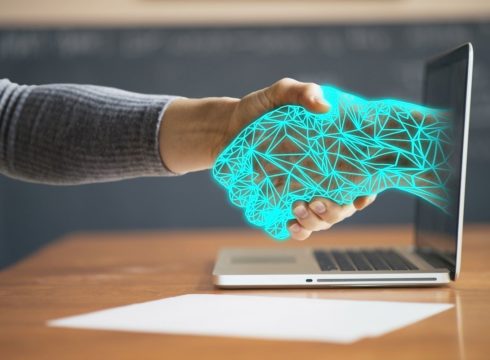SUMMARY
Technology platforms that cater to expert services will have to measure their success based on the quality of “matchmaking”
Liquidity imbalances result in a suboptimal experience for either side
It is possible to use machine learning to suggest approximately matched or related need to service pros
Inc42 Daily Brief
Stay Ahead With Daily News & Analysis on India’s Tech & Startup Economy
Imagine a future where you are looking for an interior design expert to help renovate your home: you open an app and record your service requirement into your smartphone – it instantly and magically suggests four experts close to your location and available right then to visit your house and provide a quote. And you start getting calls within 30 seconds!
How does one define and measure the attributes of an interior decorator, a wedding planner or a professional photographer? How does one correlate those attributes with what consumers are seeking?
Often, both service providers and consumers are not aware of the nuances involved in a specific service requirement until they start conversing. Unlike low-cost, commoditized services like booking a taxi or ordering food, the expert services industry is characterized by the following key principle: every service requirement is unique, and every service professional is unique.
To make matters more interesting, there is some fluidity on both sides. For example, a caterer who does only large parties during the festive season of October to December may serve smaller events later.
Technology platforms that cater to expert services will have to measure their success based on the quality of “matchmaking”, i.e. connecting a consumer with a need to the right set of service professionals that can best satisfy the need. Artificial intelligence and machine learning (AI/ML) techniques become essential for such platforms and play a vital role in several areas.
The Demand-Supply Equilibrium
The dynamic nature of demand-supply dynamics on a two-sided services marketplace offers valuable ways to leverage AI. How many service pros and service requests by consumers in each city-category combination does a marketplace need so that both sides are happy?
Liquidity imbalances result in a suboptimal experience for either side. A platform must be able to forecast the number of service pros needed with reasonable certainty based on the anticipated volume of service requests. There are other variables that complicate this. Some service requirements like home cleaning and pest control are relatively urgent and consumers expect a matched service pro to respond as soon as possible.
Some other service needs like exam coaching are highly seasonal and demand spikes at certain key times during the year. Techniques like ARIMA (Autoregressive Integrated Moving Average) and exponential smoothening are “self-learning” models that are used to determine the demand for a month based on historical data.
Quality Of Matchmaking
The key success factor of a services marketplace is the quality of its matchmaking done with a high degree of specificity. For example, if a consumer is looking for an event caterer that can serve vegetarian food for 150 guests for a party in Bandra in Mumbai on September 25, he or she must be matched with the right service pros for this.
The first task here is to define the right set of attributes for a service request placed by a consumer as well as those of service pros when they are onboarded on to the platform. The matching is straightforward when there is a demand-supply equilibrium but if there is an imbalance, the matchmaking algorithm needs to suggest a service pro whose attributes are “best-matched” to the need.
It is possible to use machine learning to suggest approximately matched or related need to service pros. Collaborative filtering can be used as a method of making automatic predictions about “related” interests of a service pro by collecting preferences from many service pros (collaborating).
As more and more needs and pros are matched the “machine can learn” and start to suggest related needs to service pros. If service pros can “pick and choose” service requests they would like to respond to, the machine learning process can be made even richer. Such learning systems are like the recommendation engines used in applications like YouTube, Netflix and Facebook.
For example, in Netflix, you can set your initial profile and preferences and the system suggests movies or TV shows but as you continue to watch more shows, it learns your preferences and suggests more.
As described above, AI/ML can be used to significantly improve the efficiency of an expert services marketplace dealing with customized and complex needs.
Note: We at Inc42 take our ethics very seriously. More information about it can be found here.


